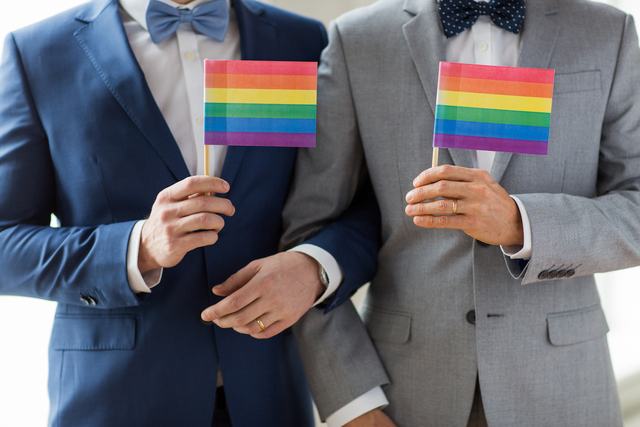The Local newsletter is your free, daily guide to life in Colorado. For locals, by locals.
“Nothing in the world is more dangerous than sincere ignorance and conscientious stupidity.” —Martin Luther King Jr.
How do you measure sincerity? It’s a question Colorado lawmakers should consider as they debate House Bill 1180, a proposal championed by some of Colorado’s most conservative legislators that would create a broad category of exemptions from newly minted or updated anti-discrimination laws that certain people would rather not follow.

Like other so-called religious freedom bills that have arisen in response to the legalization of same-sex marriage, this one also includes language that “sincerely held” religious beliefs are sufficient for someone to deny commercial services to someone else because something about that would-be customer is religiously objectionable to the person providing the service.
Which is a long-winded way of saying they don’t want to legitimize gay people or gay marriage (and you can bet the farm that the law would also be wielded against American Muslims or any other group that a “conscientious” Christian might deem to be bad). An example of this unfolded here in 2012 when a Lakewood baker refused to make a wedding cake for a same-sex couple because, the baker claimed, doing so would have violated his religious opposition to gay marriage. This past August, the Colorado Court of Appeals ruled that the baker had violated the state’s Anti-Discrimination Act.
Over the past several years, as the sanctioning and acceptance of gay marriage found momentum in a number of states before being effectively legalized nationwide by the United States Supreme Court in June 2015, more than 20 state legislatures began constructing laws to counter the decision. Indiana and Arkansas are among those that have approved versions of these statutes, and on Wednesday, seeking to blunt this movement in Colorado, a bipartisan group of former lawmakers and current civic leaders held a press conference citing Indiana’s experience and denouncing HB 1180 as discriminatory–and simply bad for business.
After Indiana Governor Mike Pence signed his state’s bill into law about one year ago, he faced immediate backlash. The philosophical objections were expected, but the pushback also affected Indiana’s bottom line, drastically and immediately. The new law has been accused of costing the state about a dozen conventions and $60 million in related revenue as of January. The “Visit Indy” tourism board reported that year-over-year tourism bookings dropped 43 percent in the quarter after the bill became law, and Salesforce.com, Indiana’s largest tech employer, announced plans to significantly scale back its operations in the state. It doesn’t take a PhD in economics (or divinity) to realize that Colorado’s losses in these categories, were such a bill to pass, would be considerably steeper than Indiana’s.
Because the Colorado House and governor’s office are controlled by Democrats, HB 1180 has no chance of becoming law this time around. That won’t dissuade its backers. Much like the “personhood” initiatives that religious conservatives keep proposing—and Colorado’s citizens keep resoundingly rejecting—these folks are convinced their actions are blessed by a higher power.
Which brings us back to the question of sincerity. There surely are tens of millions of people in the U.S. alone who consider their religious convictions to be “sincerely held.” That doesn’t mean their behaviors match their beliefs; for example, a Georgia florist who declined to serve gay couples also acknowledged that she would have no qualms about doing business with, say, an adulterer, even though the prohibition of that act is one of the Ten Commandments.
The Bible, replete as it is with contradictory passages, is impossible to follow to the letter. But if you’re going to refuse to bake a wedding cake for a gay couple, the Good Book’s words also dictate—expressly—that you’d better also be refusing to bake one for a whole bunch of other couples. Singling out gay people for rejection isn’t demonstrating that your beliefs are sincere; it’s demonstrating that they’re abjectly hypocritical.
A person’s relationship with his or her God is supposed to be unimaginably powerful, intensely personal, and it’s supposed to rise infinitely above the mundane details and distractions of corporeal life. We’ll see whose words and actions get rewarded or punished once we’ve reached the other side. But as long as we’re still living, breathing humans coexisting in democratic societies, we can’t lawyer or legislate our way out of our solemn–and sincere–obligation to treat each other with inclusiveness and respect.
—Photo courtesy of Shutterstock








